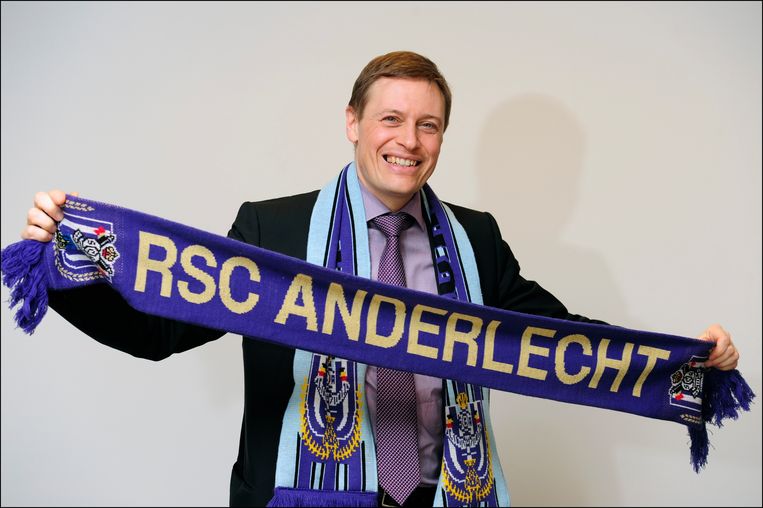Football club RSC Anderlecht has announced a radical reorganisation of its boardroom, with a new CEO, the arrival of some top managers, and the mayor of Brussels coming in as a director of the club.
Businessman Mark Coucke remains as chairman, and has brought in a group of heavy hitters to turn the club the way he wants it to go. The new CEO is Karel Van Eetvelt, formerly head of Unizo, the organisation for the self-employed, and more recently director of Febelfin, the association for Belgium’s financial sector.
Just last week, Van Eetvelt was floating the idea of a new political movement, led by himself. At that point, it now emerges, he was aware of Coucke’s offer.
Wouter Vandenhaute is one of the creators of the TV production house Woestijnvis, who has now broadened out his empire into other media. He is appointed as an adviser to the Anderlecht board. And two more board seats go to Patrick Lefevere, manager of the Deceuninck-Quick-Step cycling team and reputedly the most successful cycling manager ever; and to Philippe Close, mayor of Brussels-City and the only francophone among the new arrivals.
The nomination of Close (PS) raised doubts in the minds of opposition parties CD&V and N-VA regarding possible conflicts of interest. Close came to the mayor’s office amid a scandal within his party over the multiple nominations being collected by politicians. At the time he promised he would divest himself of all other posts but those essential to the role of a mayor. The question now is, how does a seat on the board of a football club sit with his mayoral role?
Close has defended himself. He will exercise his board function for free, he said, not even accepting a season ticket to matches, which he has already, bought and paid for out of his own pocket.
“We see this as an opportunity to increase the attractiveness of Brussels,” he said.
The job of the new arrivals will be to turn the fortunes of the club around, from last season’s €27 million loss and debts of an estimated €100 million. Anderlecht comes somewhat late to the show, according to some experts, in transforming itself from a family-run hobby of the 1990s into a dynamic enterprise of the 2000s. The arrival of major names from both sport and business can only help with that ongoing project.
According to Trudo Dejonghe, a sports economist at the University of Leuven, “Anderlecht needed this. If you produce accounts like those and still run your club as a family business, then you need to present investors, bankers and sponsors with a positive story.” Van Eetvelt, he said, “radiates trustworthiness, will bring peace and will attempt to bring some order to the accounts.” Van Eetvelt’s background with business and finance, and his strong links with Vandenhaute, an expert in the business of sport, is, Dejonghe said, “hopeful.”
Alan Hope
The Brussels Times

